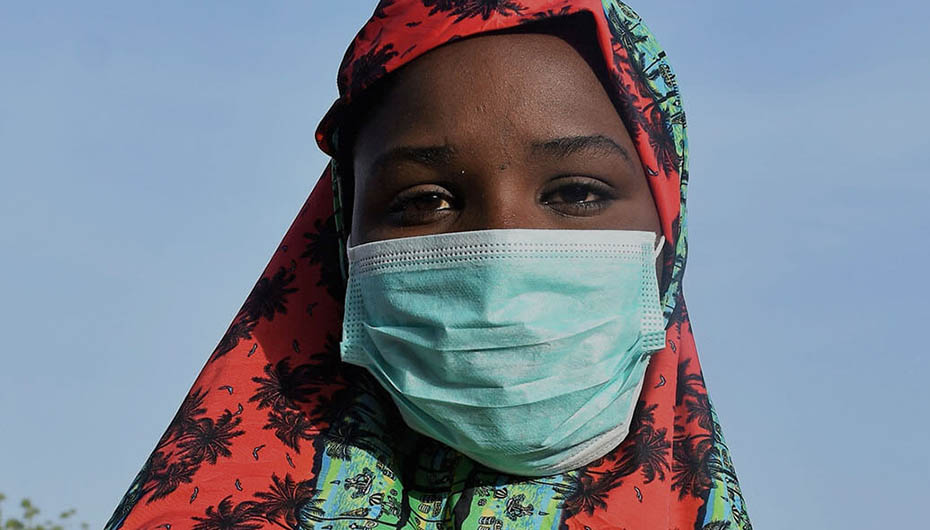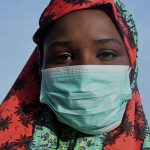Media Centre - Media release - 5 May 2020
Millions of girls face devastating lifelong ripple effects of COVID-19: hear their stories in new report ‘Living Under Lockdown’

The impact of the COVID-19 pandemic will have a devastating secondary impacts for girls worldwide, according to a new report released today by the charity for girls’ equality, Plan International Australia.
The Living Under Lockdown: Girls and COVID-19 report is a review of evidence into how emergencies and humanitarian crises affect girls differently and includes interviews with girls specifically impacted by COVID-19.
Researchers analysed previous crises, including the Ebola epidemic, hunger and conflict in South Sudan and the Lake Chad Basin, the Rohingya refugee crisis and the refugee camps in Beirut, Lebanon.
They found girls living in a COVID-19 world are more at risk of being pulled out of school permanently, permanent unemployment, abuse and violence, food shortages and extreme poverty, increased pregnancy and child marriage and a greater chance of becoming infected with COVID-19, due to traditional care-giving gender roles.
Specific risks to girls include:
Education: with 743 million girls currently forced out of school, parental pressure to help at home or earn an income means many adolescent girls may be unable to return to school. If education needs are not prioritised, we risk reversing 20 years of gains in girls’ education, as well as leaving vulnerable girls without access to social support networks.
Lack of access to/ unaffordability of menstrual hygiene products: in Lebanon, a survey of 1100 refugees, 66% reported they did not have the financial means to buy hygiene pads.
Gender-based violence: there has also been an alarming increase in reports of gender-based violence worldwide. In China at the height of the quarantine, there was a threefold increase in calls to women’s shelters regarding violence at home and Refuge UK reported a 700% increase in calls to its helpline in a single day.
Sexual assault, pregnancy and related complications: lack of access to psychosocial and protection support, loss of livelihoods and income and diversion of funds from sexual and reproductive health services could have catastrophic long-term consequences for an entire generation of girls.
CEO of Plan International Australia, Susanne Legena, said these alarming ripple effects threaten to undo decades of gains in girls’ rights.
“Of course we are extremely worried about the immediate health impact of COVID-19. But we know from our experience in emergencies, that there will be a secondary, longer-lasting and potentially more devastating fallout as a result of lock-downs that have been necessary to slow the spread,” Ms Legena said.
“The economic, social and psychological impact on those already vulnerable will be huge. Many may never recover. Without a concerted effort to respond to the specific risks to girls, we face a terrible reality that many of the gains in gender equality and girls’ rights we’ve made over the past few decades will vanish.
“Many governments have quite rightly responded quickly to the spread of COVID-19, with containment measures and lockdowns now affecting at least half the world’s population. But the consequences of these measures will fundamentally affect the world in which girls grow up.”
Plan International is responding to COVID-19 in at least 50 countries, with a focus on protecting and supporting girls and advocating for girls to be included in immediate and long-term responses to the virus.
“Governments and authorities must ensure families are protected from hunger with cash assistance to vulnerable households, while helplines and refuges must be provided to help protect girls and women from gender-based violence,” Ms Legena added.
“Authorities must work with teachers and mobile phone companies to make distance education affordable and accessible to all. Governments must also ensure girls and young women continue to have access to sexual and reproductive health information and services.
“We want girls to know that we are listening to them. We will ensure their voices and lobby for governments to ensure they take a gendered response to this pandemic.”
Media contacts


